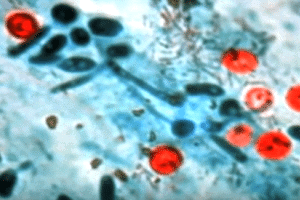
Cryptosporidium is a common diarrheal disease caused by microscopic parasites. Once an animal or person becomes infected, the parasite lives in the intestine and passes in the stool. The parasite is protected by an outer shell that allows it to survive outside the body for long periods of time and makes it very resistant to […]

Cryptosporidium is a common diarrheal disease caused by microscopic parasites. Once an animal or person becomes infected, the parasite lives in the intestine and passes in the stool. The parasite is protected by an outer shell that allows it to survive outside the body for long periods of time and makes it very resistant to chlorine-based disinfectants. The disease and the parasite are both commonly referred to as crypto. Over the past two decades, crypto has become one of the most common causes of waterborne and foodborne diseases within humans in the United States. The parasite may be found in drinking water and recreational water in every region of the United States.
Cryptosporidium can be found in soil, food, water, or surfaces that have already been contaminated with infected human or animal feces. If a person swallows the parasite they become infected. You cannot become infected through contact with blood. The parasite can be spread additionally by:
Symptoms generally begin 2 to 10 days (average 7 days) after becoming infected with the parasite. In persons with healthy immune systems, symptoms usually last about 1 to 2 weeks. The symptoms may go in cycles in which you may seem to get better for a few days, then feel worse again before the illness ends. Common symptoms include:
People Most At Risk
If you or a loved one developed the waterborne/foodborne disease Cryptosporidium as a result of drinking contaminated water or eating uncooked food and you suffered serious health ailments, please fill out the form at the right for a free case evaluation or call us at 1-800-YOURLAWYER (1-800-968-7529).


